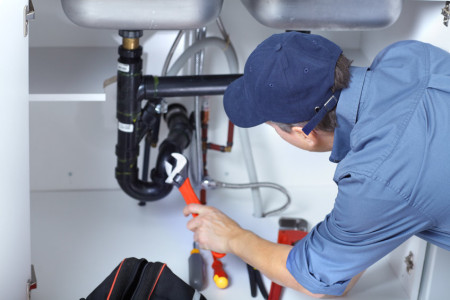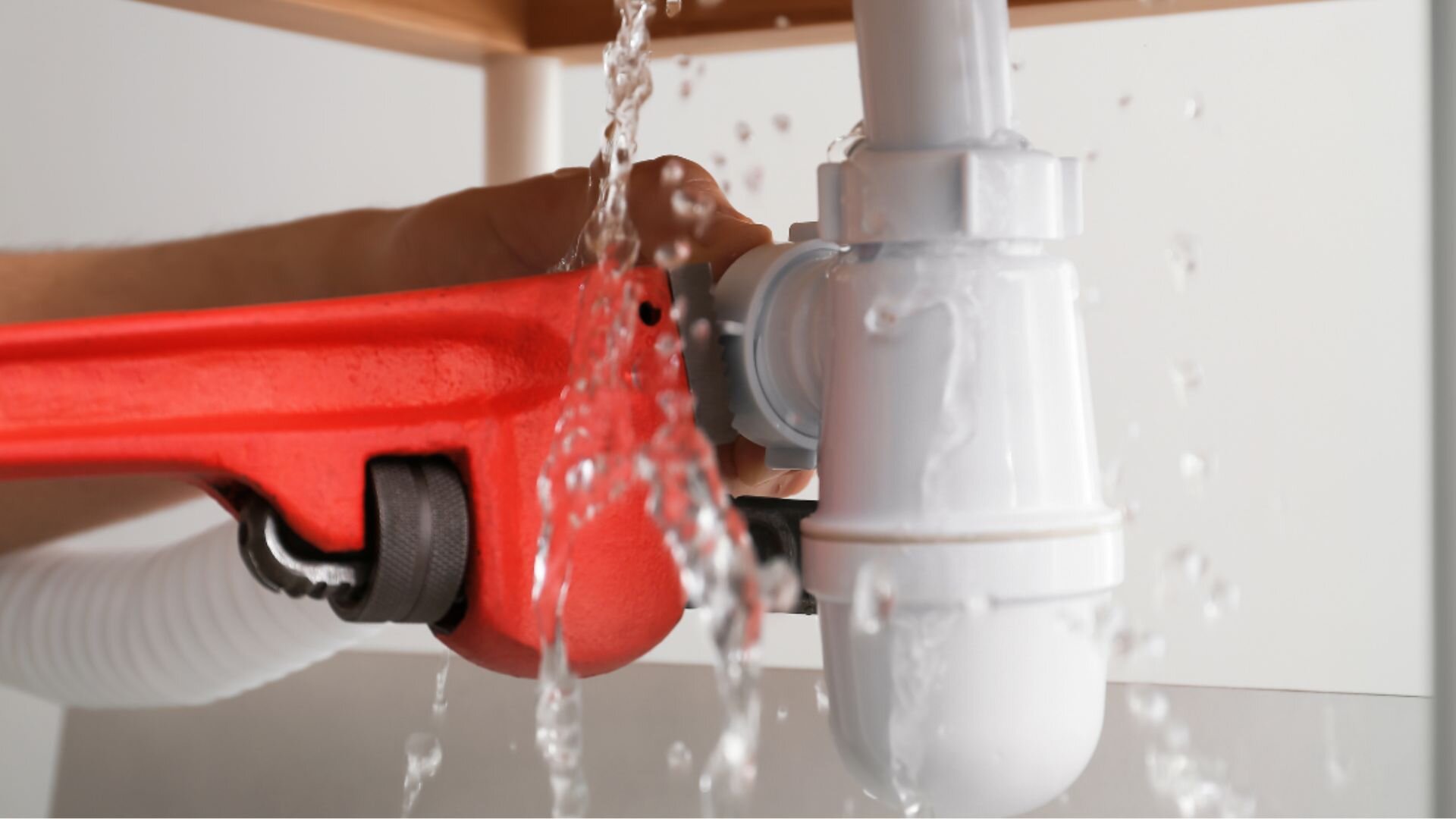Quick Plumbing Advice for Urgent Issues Until Support Arrives
Quick Plumbing Advice for Urgent Issues Until Support Arrives
Blog Article
This post on the next paragraphs on the subject of Expert Tips for Managing a Plumbing Emergency Until Help Arrives is amazingly attention-grabbing. Check it out for yourself and decide what you think of it.

Plumbing emergency situations can strike at any moment, causing anxiety and potential damages to your home. Whether it's a burst pipeline, a clogged up drain, or a dripping faucet, knowing exactly how to manage the circumstance until a specialist plumber gets here can save you from additional complications. This post provides vital emergency situation pipes tips to assist you minimize damage and restore control throughout a pipes crisis.
Turn Off the Supply Of Water
The initial step in any type of pipes emergency is to turn off the water supply. For localized concerns, such as a leaking faucet or bathroom, switch off the valve near the component. When it comes to a major leak or burst pipeline, locate your home's main water shut-off shutoff and transform it off instantly. Understanding the area of these valves in advance can conserve beneficial time throughout an emergency situation.
Address Small Leaks with Momentary Solutions
Small leaks can rapidly come to be substantial problems if left unattended. Utilize these short-lived fixes until expert assistance gets here:
While these fixes aren't permanent, they can aid decrease water loss and damages.
Unclog Drains Pipes Safely
A blocked drain can be a frustrating and messy concern. Below's exactly how to tackle it:
If these methods do not work, avoid making use of extreme pressure, as it may intensify the clog.
Manage Overflowing Toilets
An overruning commode can cause instant mayhem. Below's what you need to do:
Shut Off Your Hot Water Heater
In certain emergency situations, such as a burst pipeline, it's wise to turn off your hot water heater. This avoids getting too hot or damage to the system when water quits flowing. Switch off the power supply to the water heater (electrical or gas) and let it cool to prevent potential dangers.
Temporarily Quit a Burst Pipe
A burst pipeline can result in significant water damages in minutes. To mitigate the concern:
Call a professional plumber immediately to resolve the trouble completely.
Take Care Of Frozen Piping Carefully
In colder climates, frozen pipelines are an usual emergency situation. If you believe an icy pipeline:
Stop More Damages
Taking quick action to lessen damages can conserve you money and time in the future. Right here's just how:
. Have an Emergency Pipes Package
Prepare a basic plumbing emergency situation package to take care of minor problems successfully. Your package needs to include:
Having these tools on hand can make a substantial difference in your ability to handle emergency situations.
Know When to Call a Specialist.
While quick fixes can assist momentarily, particular pipes issues need instant expert focus. Call a plumbing professional if:.
Quickly calling an expert makes sure the problem is fixed correctly and prevents more issues.
Final thought.
Plumbing emergencies can be overwhelming, but with the right expertise and devices, you can handle the situation effectively until aid gets here. By shutting off the supply of water, resolving tiny leaks, and using temporary solutions, you can decrease damages and keep your home safe. Remember, these pointers are momentary services; always consult a qualified plumbing technician to deal with the root cause of the issue. Preparation and fast thinking are your best allies in any kind of plumbing emergency.
8 Helpful Tips for Managing Plumbing Emergencies at Home
If your plumbing system hasn’t failed once, wait for it because almost everyone has a story to tell. Sometimes, it could be simple emergencies such as a leaking pipe, a blocked cistern, or even a big burst pipe. In situations like this, you need to have some handy tips to save you some money and from possible damages.
Take care of minor issues early.
Sometimes, you could have avoided an emergency by taking proactive measures while it was still early. Some major plumbing emergencies can be a result of an ignored minor issue. We recommend that you have items like plumbing tapes and other related items. A plumbing tape can allow you to manage minor leaks before the plumber arrives.
Cut off the water supply.
This tip is essential in almost any type of leakage problem. For problems like minor leakages in the toilet or kitchen, turn off the supply that takes water to the affected pipes. If the leakage is a major pipe, you must shut off the supply valve to the entire building. This will help you avoid flooding your home and neighbors if you share a flat.
Know your plumbing system
Folks typically move into a new apartment without understanding the water supply around the building. This can prove disastrous if a water emergency arises and the plumber is far away. The previous tip will prove useless if you don’t practice this one. More importantly, know where your water shut-off valve is located – you’ll need that knowledge to prevent potential home floods.
Have some common handy tools
There are lots of plumbing emergencies that you can handle without hiring a plumber. That’s why you must keep some tools available always. Some tools that you can use to fix simple plumbing emergencies easily include plumbing tapes, screwdrivers, thread seal tapes, plungers, pliers, tape measures, and rubber gloves.
Insulate your pipes from cold
You’ll save yourself from many plumbing expenses if you protect your water pipes from the cold. This is because of the harmful effects that cold weather can have on your pipes. During winter, your pipes can burst from being overly expected to freezing temperatures. So, make sure insulators are there to keep the pipes working correctly.
Avoid practices that will clog your toilet.
Many people indulge in practices that can damage the plumbing system of the entire building. One of these is when they use their toilet to dispose-off garbage. They flush all kinds of things, such as paper towels, bandages, hairs, female sanitary products, etc., down the toilet. This will block your toilet in the long run, incurring unnecessary expenditures. Dump such waste in the trash instead.
Check your dials regularly.
Sometimes, there could be leakages in your home without noticing them in time. So, constantly monitor your water meter dial. If the dial is reading when there is nobody using water, this is an indicator that there is leaking. Check for leaks immediately. Call a plumber as soon as possible if you can’t find any.
https://www.constructionplacements.com/8-helpful-tips-for-managing-plumbing-emergencies-at-home/

As a devoted person who reads about What to Do During a Plumbing Emergency, I was thinking sharing that editorial was worth the trouble. Sharing is good. You never know, you could be doing someone a favor. We thank you for reading our article about Plumbing Emergencies: Tips on What To Do Before.
This Page Report this page